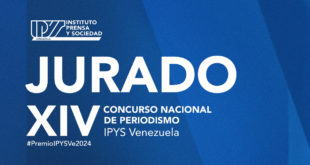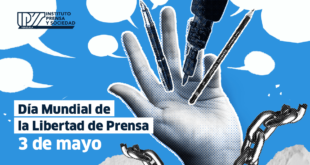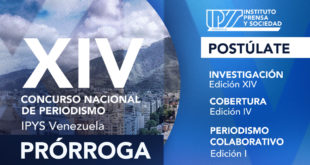On August 28, 2013, journalists of private media Globovisión, Diario de Los Andes, Televen, La Nación, Televisora Regional del Táchira, El Universal and 30 Minutos Táchira were partially limited to accessing information by military men in charge of presidential security during the visit of the nation´s head of state, Nicolás Maduro, to Fort Murachí in Táchira state.
The group of journalists of private media covering the event described to IPYS Venezuela that they received the call by email through the Ministry of communication and information (Minci). The event was to start at 9 am of that same day, so journalist of private media, cameramen and photographers arrived on time to the location to receive their accreditation. Once they entered, the communicators were shifted back and forth because there was no space allocated for them. They waited for five hours without chairs or water while the president arrived.
During that time, military men officials constantly intimidated the reporters for leaving the makeshift space assigned to the private press. Meanwhile, reporters of the Bolivarian Communications and Information System (SIBCI), a platform dependent on the Minci, had full access to the act.
They recounted that once Nicolás Maduro arrived he spoke to all the media and then he spoke about magnicide plans and other general topics. However, he said “now I am going to make some announcements” and proceeded to commence the act to which the journalist of private media of private media had no access. The reporters were separated from the area where the president was and had no sound amplification to be able to take notes on what Maduro was saying. Military men told the media that after protocol acts they would be allowed to enter the premises. However, this did not happen.
The reporters pointed out that when they attempted to come close to the space where the act was taking place, they were insulted by a colonel of presidential security, who gave the order to “shoo journalists of private media away”. Thus, military men closed off the spaces with barricades so that the journalists of the private media could not advance, so they decided to abandon the place.
Official media did have access to the place before and during the activity.
In turn, the press office of the governor of Táchira state sent a note rebutting what had transpired with the private media. “Antonio Bello Parada, head of the regional information and communications office (ORIC) of the governor´s office of Táchira stated that President Nicolás Maduro attended the representatives of the private media during the military street-style governance event”, the official communiqué stated.
“It is false that any discrimination took place. In fact, Maduro kindly attended the colleagues at their request and although he was open to answering questions, only one journalist from a regional TV station made one”, Bello Parada said, according to the note.
This situation denotes an abusive use of the state´s power which restricts the work of the media. It also represents a de facto limitation to public officials, since statements are given to journalists of ideologically aligned private media. It is also evidence of arbitrary limitations to covering affairs of public interest.
Label: arbitrary limitations on affairs of public interest; de facto limitations to access by public officials; abusive use of the state´s power
 IPYS Instituto Prensa y Sociedad Venezuela
IPYS Instituto Prensa y Sociedad Venezuela



